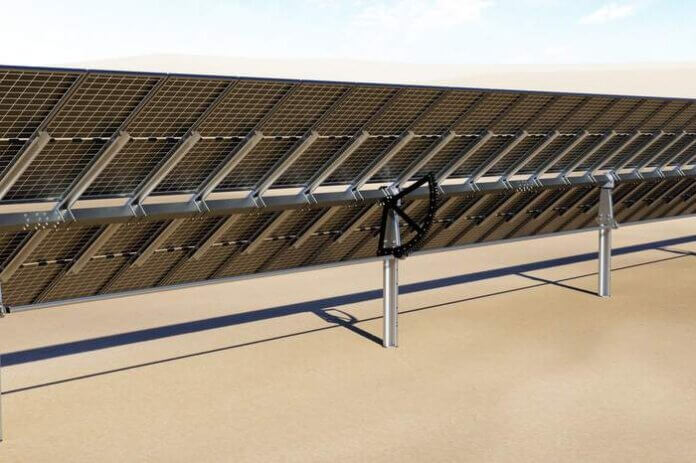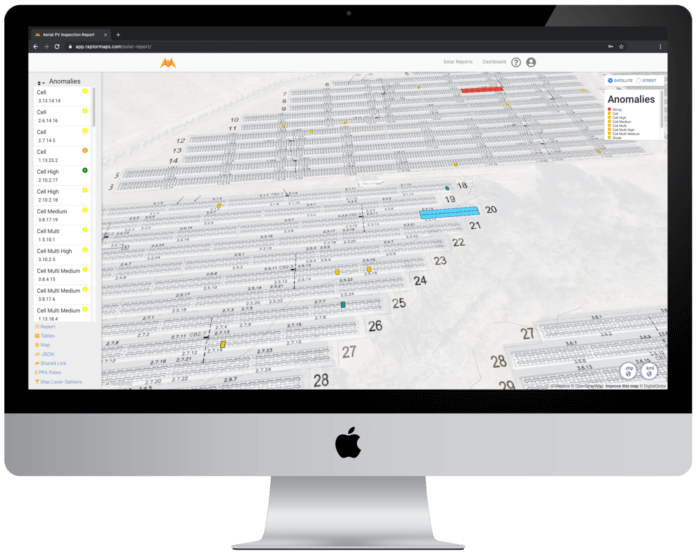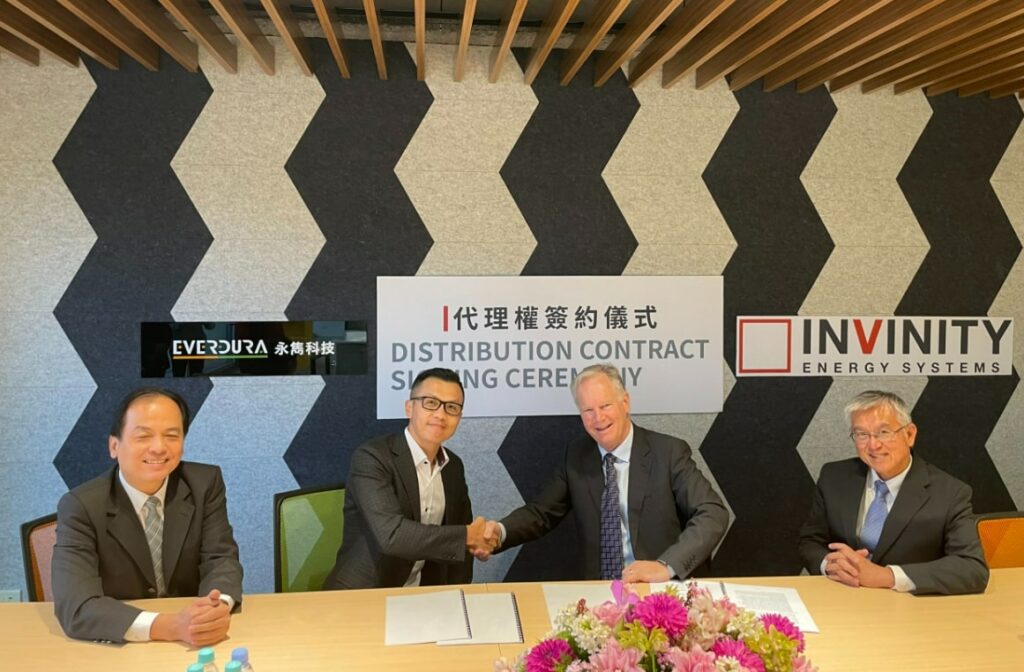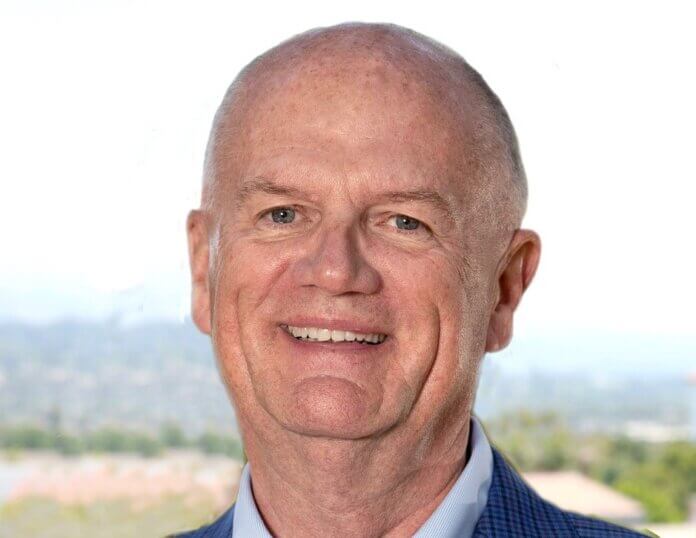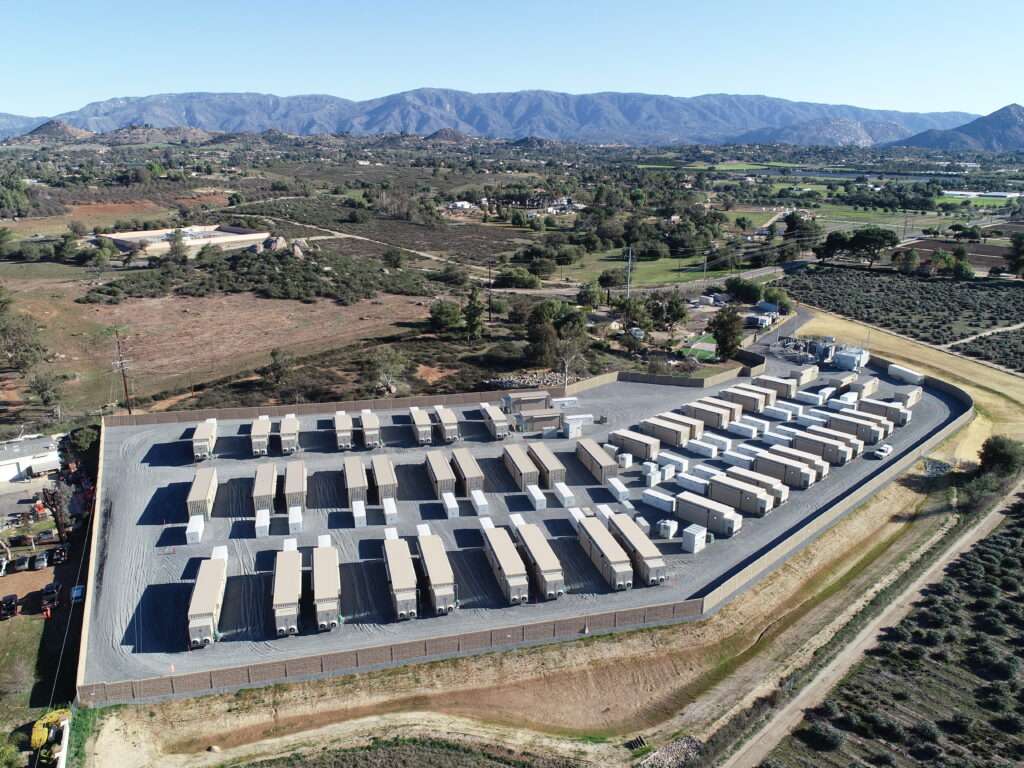Sitework for the Rabbitbrush solar project
Leeward Renewable Energy (LRE) has completed construction and commenced operations of its 100 MW Rabbitbrush Solar Facility located in Kern County, Calif., which also includes a 20 MW, 50 MWh battery energy storage system. As previously announced, the energy generated by the project will serve two not-for-profit, community-owned electricity providers, Central Coast Community Energy (CCCE) and Silicon Valley Clean Energy (SVCE), through two 15-year power purchase agreements (PPA).
LRE, CCCE and SVCE hosted a ribbon cutting ceremony at the Rabbitbrush Solar Facility earlier today to celebrate the start of operations at the facility. The event featured comments from Chief Executive Officer of LRE, Jason Allen; Chief Operating Officer of CCCE, Rob Shaw; Chief Operating Officer & Director of Power Supply at SVCE, Monica Padilla; Director of Kern County Planning and Natural Resources, Lorelei Oviatt; Executive Director of CalCCA, Beth Vaughn; and Kern County Supervisor, Zack Scrivner.
“LRE is proud to partner with CCCE and SVCE on a monumental project that will provide significant economic and environmental benefits,” says Jason Allen, LRE’s CEO. “Bringing this project online is another example of how we manage our projects in alignment with our core values of protecting and respecting the environment in the communities where we operate. Our focus is on providing continuous value to local communities, while building and maintaining strong, long-term relationships.”
As part of LRE’s continued commitment to preserving and protecting the environment, the company has signed an agreement with the National Audubon Society and Kern Audubon Society to contribute $150,000 to a fund for the study and conservation of the Swainson’s Hawk in the Antelope Valley.
“Responsible renewable energy development and wildlife conservation go hand in hand, and LRE’s contribution to the very important Swainson’s Hawk Conservation Fund will help hawks in the Antelope Valley of California survive and thrive,” states Garry George, director of the National Audubon Society’s Clean Energy Initiative. “We are pleased to collaborate with LRE as we advance habitat conservation and clean energy in Kern and Los Angeles Counties, and we look forward to partnering with other companies in the region to ensure renewable energy facilities avoid, minimize, and mitigate the impacts on birds and other wildlife.”
The Rabbitbrush Solar Facility features ultra-low carbon, thin-film photovoltaic solar modules that use less energy, water, and semiconductor material. Additionally, the project’s 20 MW, 50MWh battery energy storage system is designed to support the resiliency and reliability of the California electrical grid.
“The Rabbitbrush project is Central Coast Community Energy’s second solar-plus-storage power purchase agreement to come online this year,” adds Rob Shaw, COO of Central Coast Community Energy. “Coupling solar generation with battery storage allows us to move closer to a decarbonized energy grid and statewide emission-reduction goals. CCCE is committed to investing in innovation while delivering reliable energy to our customers.”
LRE closed construction financing and secured tax equity commitment for the Rabbitbrush Solar Facility in June 2022, and closed on the tax equity funding in October 2022. “Rabbitbrush helps Silicon Valley Clean Energy deliver on its commitment to provide clean, affordable, and reliable electricity,” concludes Monica Padilla, SVCE’s COO and director of power resources. “As SVCE communities shift away from fossil fuels to electrify homes and buildings, new projects like Rabbitbrush that add carbon-free capacity and reliability to the grid are key.”
Continue reading

